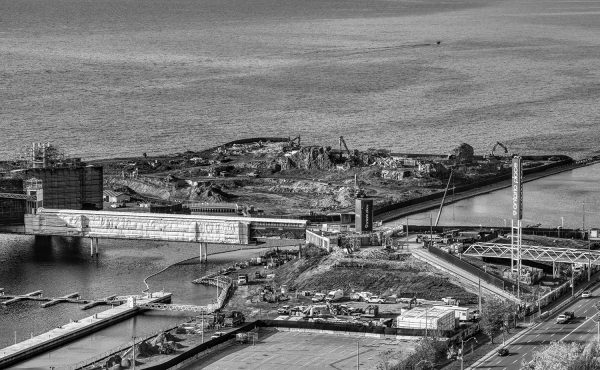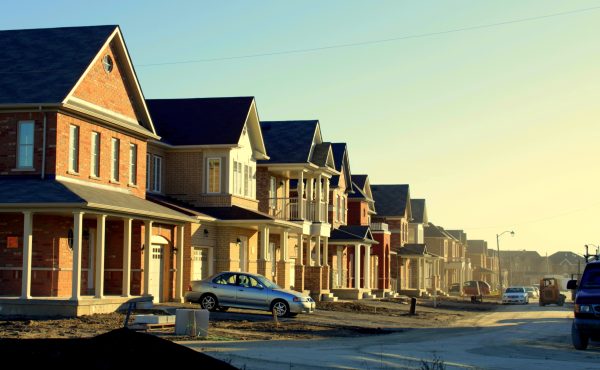After Olivia Chow’s horrible week last week, John Tory has seen his transit platform placed under a high-power microscope in recent days, with skeptical analyses of his tax increment financing scheme, the timelines he claims will be required to build his centre-piece Smart Track project, and his various statements about the importance he will (or won’t) assign to the Finch West and Sheppard East LRT projects.
What’s gone missing from this debate, but should now be resurrected, is a discussion about Tory’s take on the Scarborough subway. With Karen Stintz out, Tory is the only cogent candidate backing the three-stop extension, so voters definitely shouldn’t forget to ask how he’ll manage that project if elected.
Throughout the campaign, Tory’s take on the Scarborough subway is that council has made its choice, so it’s time to move on. But the practical reality is that the next mayor and council will face many more decision points about this project (e.g., the required environmental assessment), including some potentially costly ones (e.g., the final budget for the re-construction of Kennedy Station, and the long-term financial impact of Tory’s Smart Track project on ridership/revenue on the Scarborough extension). All told, Tory’s position bears further scrutiny.
On Tuesday, I asked the campaign to answer the following questions: Does Tory think the $910 million tax increase approved by council for the Scarborough subway, and which has now begun to appear on property tax bills, will be sufficient to cover the entire cost of the project? And if not, how will he propose to raise the funds needed to cover any shortfall?
Campaign spokesperson Amanda Galbraith provided this reply: “We are confident in the City’s cost estimates.” She declined to respond to the second part. “We’re not going to get into hypotheticals.”
The problem is, those hypotheticals aren’t so hypothetical.
As Spacing reported earlier this year, an internal Metrolinx memo drafted in May, 2013, and obtained through a freedom of information request, estimated that the actual cost could be as high as $3.3 billion, even though only $3.05 billion has been allocated (municipal property tax hike, plus contributions from the province and the feds). And that figure excludes other outlays relating to “sunk costs” incurred by Metrolinx on the aborted Scarborough LRT project, as well as the cancelation of 48 Bombardier light-rail vehicles (LRVs).
Indeed, one of the first orders of business for the new mayor will be responding to a report detailing those two issues. In an interview with Spacing, Jack Collins, Metrolinx’s executive vice-president for rapid transit implementation, outlined the process now underway between the City and Metrolinx.
Earlier in the summer, the City retained an outside audit firm to review Metrolinx’s claim that it had spent $85 million on the Scarborough LRT and the Sheppard maintenance and storage facility. Metrolinx, Collins says, believes the final figure, which the City has agreed to reimburse, “is still in [the $85 million] range.”
But he also confirmed that the sunk costs don’t include the cancellation penalties related to the 48 LRVs that Metrolinx won’t be ordering for the Scarborough LRT. “That’s a further item we need to resolve.”
In May, 2010, the Metrolinx board awarded Bombardier with a contract for 182 LRVs. The trains aren’t actually in production yet — they’re still in the design phase, says Collins. Still, he adds, “We’re at a point where we need to sit down with Bombardier. They’re going to have to provide an estimate of the damage associated with cancelling part of the order.”
It’s a financial detail that will likely come slip-sliding across the next mayor’s desk at some point in 2015. Whoever is wearing the chain of office will find themselves forced to decide how much the City is willing to hand over to make things right with Bombardier. Will it be a case of “in for a penny, in for a pound?” Or will the Bombardier penalty, when added to the sunk cost reimbursement, future capital cost overruns and operating shortfalls, make the project simply too costly for Toronto residents? Tory won’t go there now.
Before she left the race, Stintz told me that Bombardier is not going to make things unpleasant for a large domestic customer. Still, the City cut its order by more than a quarter, so Bombardier will want something by way of compensation.
It’s worth pointing out that none of these questions will be resolved before the next council takes office. The results of the City’s third-party audit of the sunk costs have yet to be released. It is not on this week’s council agenda and council sources say they haven’t heard anything about the final figure.
Finally, outgoing city manager Joe Pennachetti hasn’t yet released the wording of the revised master agreement between the City, Metrolinx and the TTC for the remaining LRT projects (Eglinton, Finch West and Sheppard East). According to Collins, that document — the original version of which was approved in November 2012, after intensive negotiations between council, the TTC and then Ontario transportation minister Bob Chiarelli — should be much like the first one, except with the language about the Scarborough LRT “deleted.” Furthermore, council, when it approved the Scarborough subway, authorized the city manager to take responsibility for revising the document.
Yet as of the final session of this council, that revised master agreement has not yet been signed as far as I could determine (as of early August, Collins confirmed it was still under negotiation). In other words, if a new mayor arrives in office with other priorities, it’s possible that this contract could be cracked open yet again, notwithstanding Tory’s claims in the media this week that the Finch/Sheppard LRTs are provincial projects and thus not something he’ll need to worry about.
Quite the contrary: the next mayor, soon after taking office, will find him or herself contending with the aftermath of this council’s LRT wars, as well as price-tag issues related to the Scarborough subway. And none of it will be theoretical.






4 comments
Thanks for being in dogged of the multi-millions of elasticity in this subway scheme, and showing how desperately needed a reversal to the LRT actually is, at least in my view. Let’s hope that this reversal can clearly be a larger election issue, as this subway extension is too much for the now-known-to-be-rockier transick system, referring to the TTC’s broad call for system-wide boosts of about a week ago. No question we need more transit in Scarborough, and throughout the City, but if we don’t manage the billions better, the system will be further beggared as it were.
Let’s not forget that the LRT project is not immune to cost overruns, either. The province promised to cover the LRT overrun costs, but ultimately it will come from the same taxpayer.
There are pros and cons for either the subway or the LRT solution in this corridor, and they can be debated. I just want to contest the notion that a potential cost overrun affects the subway option only.
How come we order LRT because they are off the shelf products and yet they are still under design?
@Michael Forest. References to the “same taxpayer” obscure the fact that the city’s tax base is minimal and it’s revenue tools are limited. The province, despite it’s fiscal mess, still has significantly more fiscal room than the city to handle cost overruns.